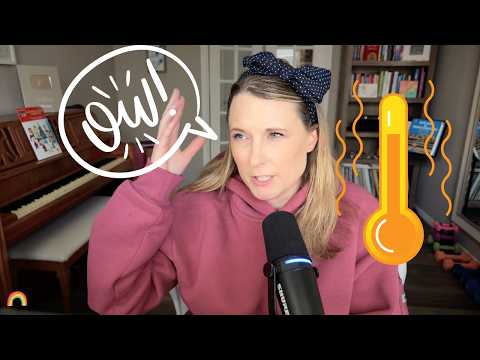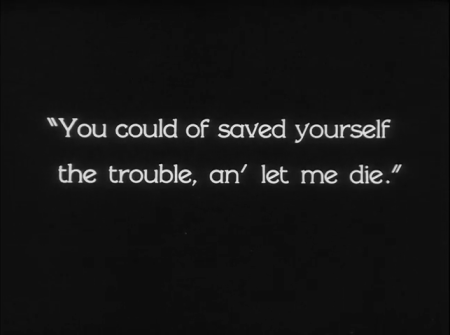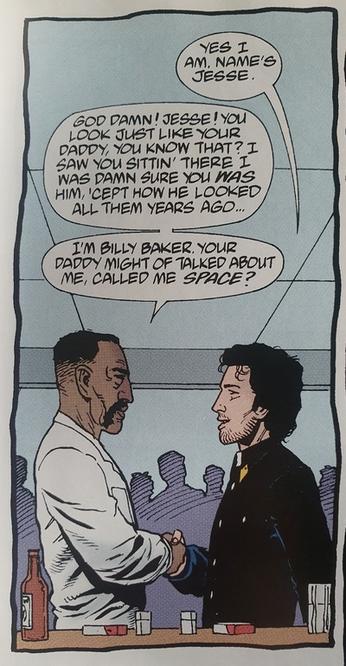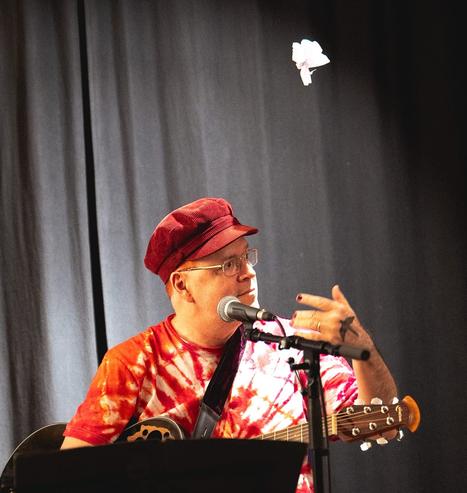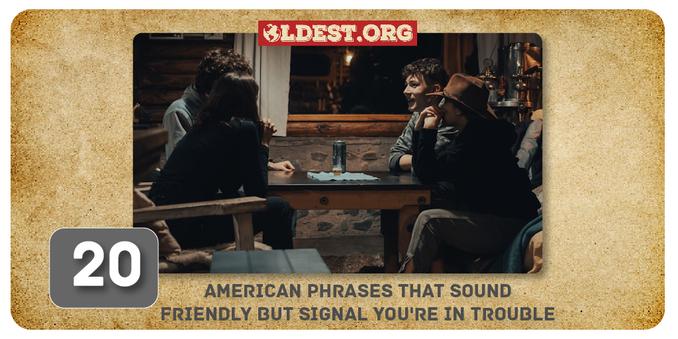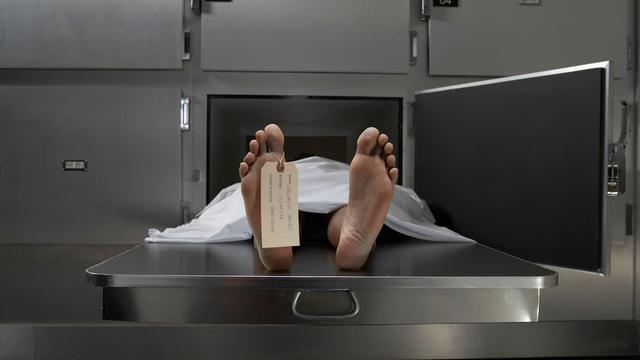Would of, could of, might of, must of
When we say would have, could have, should have, must have, might have, may have and ought to have, we often put some stress on the modal auxiliary and none on the have. We may show this in writing by abbreviating to could’ve, must’ve, etc. (Would can contract further by merging with the subject: We would have → We’d’ve.)
Unstressed ’ve is phonetically identical (/əv/) to unstressed of: hence the widespread misspellings would of, could of, should of, must of, might of, may of, and ought to of. Negative forms also appear: shouldn’t of, mightn’t of, etc. This explanation – that misanalysis of the notorious schwa lies behind the error – has general support among linguists.
The mistake dates to at least 1837, according to the OED, so it has probably been infuriating pedants for almost 200 years. Common words spelt incorrectly provoke particular ire, sometimes accompanied by aspersions cast on the writer’s intelligence, fitness for society, degree of evolution, and so on. But there’s no need for any of that.
Usage authorities unanimously call it a mistake, though some allow for its deliberate use (more on that below). Many associate it specifically with children and other less educated writers. For example, Garner’s Dictionary of Modern American Usage finds it a practice of ‘semiliterate writers’, and accepts no excuses: ‘the word is have, or a contraction ending in ’ve, and it should be written so.’
Merriam-Webster’s Pocket Guide to English Usage says ‘children and those who have not completed grammar school may have an excuse for making this mistake, but most others do not.’ What’s meant by that most is what we’ll now consider: that the misspellings don’t always indicate carelessness or relative illiteracy.
The Columbia Guide to Standard American English finds room for the anomalous forms as a stylistic device:
substituting of for ’ve in writing can be an example of eye dialect, which deliberately misspells words to suggest Nonstandard or dialectal speech. . . . The important thing is to correct it when it isn’t intentional.
The Merriam-Webster Dictionary of English Usage elaborates on this, saying writers use the spelling ‘to create an unlettered persona’. It cites several examples, including a ‘he’d of got me’ from F. Scott Fitzgerald, who ‘used the spelling to represent the speech of a woman who was not overeducated’, as MWDEU politely puts it.
Here is must of in an intertitle in the Buster Keaton film Steamboat Bill, Jr. (1928):
And in Josef von Sternberg’s 1928 The Docks of New York:
Over the last number of years, I’ve seen the non-standard of-form in many books by authors who presumably knew what they were doing:
‘I could of sworn I’d run into you some place before.’ (Carson McCullers, The Member of the Wedding)
‘Oh Miz, oh Miz,’ he moaned, rubbing his leg. ‘You shouldn’t of done that, you shouldn’t, you reely shouldn’t.’ (Sylvia Plath, The Bell Jar)
‘All bloody and mucked up, with figuring away aboard the Vénus, when two minutes would of changed it.’ (Patrick O’Brian, The Mauritius Command)
‘I’d of liked to be stabbed – and have lashings of red paint.’ (Agatha Christie, Dead Man’s Folly)
‘Never should of married‘ (Dylan Thomas, Under Milk Wood)
‘See, they must of had them already saddled.’ (Elmore Leonard, The Law at Randado)
‘If I hadn’t of got my tubes tied, it could of been me, say I was ten years younger.’ (Margaret Atwood, The Handmaid’s Tale)
‘You could of just told him.’ (Raymond Chandler, The Long Good-bye)
‘You could of said no and I could of not believed you.’ (Raymond Chandler, The Long Good-bye)
‘She must of grabbed some pills.’ (Raymond Chandler, The Long Good-bye)
‘You ought to of asked for me in the first place.’ (Raymond Chandler, ‘Trouble Is My Business’, in Trouble Is My Business)
‘Maybe I had ought to of gone to the servant’s entrance.’ (Raymond Chandler, ‘Trouble Is My Business’, in Trouble Is My Business)
‘Youve never seen anything so mad, the lassie couldnt of known what kind of nut house she was in.’ (Alan Warner, Morvern Callar)
‘I don’t suppose he would remember you,’ the woman said thoughtfully. ‘Seems like he would of mentioned you sometimes if he did.’ (Shirley Jackson, ‘The Lie’, in Let Me Tell You)
‘He shouldn’t of done it, that’s all’ (Shirley Jackson, ‘Root of Evil’, in Let Me Tell You)
‘My wife,’ he said, putting his elbows on the counter and still watching Judith, ‘my wife, you ought to of heard her when she thought I was going.’ (Shirley Jackson, ‘Homecoming’, in Let Me Tell You)
‘If he’d of been a friend of mine you would have said plenty, believe me,” Mrs. Royster said darkly. (Shirley Jackson, ‘The Daemon Lover’)
‘She sure must of been glad to see him, the way he looked,’ the old man said. (Shirley Jackson, ‘The Daemon Lover’)
‘I never saw him,’ the clerk in the drugstore said. ‘I know because I would of noticed the flowers.’ (Shirley Jackson, ‘The Daemon Lover’)
‘If you had of been dead, you’d of had a funeral. I only just thought a that now. I’d of went along.’ (Claire Kilroy, The Devil I Know)
Mabey I shoudnt of let them oparate on my branes like she said if its agenst god. (Daniel Keyes, Flowers for Algernon)
Now that makes me feel bad because I would never of hurt the baby. (Daniel Keyes, Flowers for Algernon)
‘I should of had my head examined.’ (Daniel Keyes, Flowers for Algernon)
‘She should of got it lit before we arrived.’ (Terry Pratchett, Wyrd Sisters)
‘Maybe you should of shot us when we was far away.’ (Chris Cleave, The Other Hand)
‘If he’d been an animal, he’d of been the runt of the litter and we’d of put him down.’ (Gillian Flynn, Dark Places)
‘I could of used the money,’ Donna said. ‘That’s what I was thinking.’ […] ‘It’s true,’ she said. ‘I could of used the money.’ (Raymond Carver, ‘Vitamins’, in Cathedral)
‘And here I’d of sworn…’ He took another try at the coffee cup, registered surprise to find it empty. (James Sallis, Drive)
‘Figured they must of took you when they took Ellis.’ (James Sallis, Bluebottle)
Must of been May 14 as May 12 is my birthday and it was by way of a late present. (Minette Walters, The Ice House)
‘You could of got it from the paper.’ (Minette Walters, The Sculptress)
‘You should of shown me this last time.’ (Minette Walters, The Sculptress)
‘She went guilty so she must of done it.’ (Minette Walters, The Sculptress)
Yorkin cringed. ‘Me. Pierce told me to clip him. I shouldn’t of done it by the drop.’ (James Ellroy, L. A. Confidential)
‘That sure could of been true,’ says the clerk at the Salon City store (Jon Krakauer, Into the Wild)
‘I must of fell asleep, eh?’
‘I guess you must have,’ said Isserley. (Michel Faber, Under the Skin)
Then one day, it must of rained, and man discovered a new place: indoors. (Philomena Cunk, Cunk on Everything)
And where that monkey might of come from. (Philomena Cunk, Cunk on Everything)
I would of put loads more dinosaurs in. (Philomena Cunk, Cunk on Everything)
‘Donnie, we’d of finished this Betamax deal in ten days. And we’d have had winter money, all three of us.’ (Joseph D. Pistone with Richard Woodley, Donnie Brasco: My Undercover Life in the Mafia)
‘And who else could of built it?’ Mr Madden shouted. (Brian Moore, The Lonely Passion of Judith Hearne)
Sheila, the woodshed, should of paddled you sooner. (Brian Moore, The Lonely Passion of Judith Hearne)
‘You went had in there. Stark mad. You’d have raped her if . . .’
‘I’d of what?‘ (Brian Moore, The Lonely Passion of Judith Hearne)
‘I never should of come here.’ (Brian Moore, The Lonely Passion of Judith Hearne)
‘Whether Miriam would of been any different, I don’t know, but I’d say she’d of been worse.’ (Patricia Highsmith, Strangers on a Train)
‘I’d of thought Mrs Herman was the last person in the world to—’ (Dashiell Hammett, The Dain Curse)
…the marshal hadn’t taken any of the Collinsons’ property though of course he might of. (Dashiell Hammett, The Dain Curse)
‘I wouldn’t of flagged that taxi if the For Hire flag hadn’t been up.’ (Dashiell Hammet, ‘Fly Paper’, in The Big Knockover and other stories)
”F he’d of been a man I’d of seen him in hell ‘fore I’d of gave it to him.’ (Dashiell Hammett, ‘Corkscrew’, in The Big Knockover and other stories)
‘They may of gone,’ he said slowly. (Dashiell Hammett, ‘The Golden Horseshoe’, in The Continental Op)
‘But he must of gone through the house and out front . . .’ (Dashiell Hammett, ‘The Girls with the Silver Eyes’, in The ContinentalOp)
‘Anybody could of got in them with a ladder.’ (Dashiell Hammett, ‘The Farewell Murder’, in The Continental Op)
‘Well, we would of if she hadn’t put the two X’s to me the same as she done to you’ . . . ‘but if my rod hadn’t of got snagged in my flogger you wouldn’t have seen nothing else.’ (Dashiell Hammett, ‘The Whosis Kid’, in The Continental Op)
‘If I’d known you five years ago I’d of given it to you.’ (Sara Paretsky, ‘The Maltese Cat’, in Windy City Blues)
‘Mate, I’ve probably said enough already. More than I should of (taps nose) . . . Professional conduct an’ all that.’ (Nicola Barker, Darkmans)
‘Yes, and if the bastard hadn’t of moved I’d have got him, too.’ (Alexander Masters, Stuart: A Life Backwards)
‘I’m Billy Baker. Your Daddy might of talked about me, called me Space?’ (Garth Ennis and Steve Dillon, Preacher) (pictured and quoted below: Preacher no. 2: Proud Americans)
”Cause I hope I ain’t outta line here, but I think he’d of been cool about you hearin’ it…’ (Garth Ennis and Steve Dillon, Preacher)
‘He was stupid an’ clumsy an’ kind of a weakling, an’ he wouldn’t of lasted a fuckin’ day over there if it hadn’t been for one thing’ (Garth Ennis and Steve Dillon, Preacher)
‘See, we’d of done Murphy there an’ then, we’d of had to do Van Patten as well — an’ I knew your Daddy didn’t really wanna do that.’ (Garth Ennis and Steve Dillon, Preacher)
The Dunns must of felt this when Tracy vanished. (Octavia E. Butler, Parable of the Sower)
‘She must of really gotten knocked out.’ (Jonathan Lethem, Girl in Landscape)
‘He’s not around now, or you’d of met him.’ (Jonathan Lethem, Girl in Landscape)
‘They could of just been losing us,’ said Coney. (Jonathan Lethem, Motherless Brooklyn)
‘Your parents must of been hippies,’ he’d tell me. (Jonathan Lethem, Motherless Brooklyn)
‘He might of been a little impatient for his date with Frank.’ (Jonathan Lethem, Motherless Brooklyn)
‘If it weren’t for Gilbert I would of told him to stick it—’ (Jonathan Lethem, Motherless Brooklyn)
‘Oh, I’d of straightened it out,’ Tony said. (Jonathan Lethem, Motherless Brooklyn)
‘Each one of them, he says it might of been you, it might of been two other guys.’ (Robert Anton Wilson, The Universe Next Door)
‘You must of been back on the reservation eating peyote again.’ (Robert Anton Wilson, The Universe Next Door)
‘And it wouldn’t of mattered to me whether you did or did not like women.’ (George Pelecanos, Drama City)
‘I wouldn’t of thought of such a thing in a million years.’ (George Pelecanos, The Big Blowdown)
‘If you hadn’t of stepped in the middle of everything—’ (George Pelecanos, The Big Blowdown)
It would of done no good gettin’ somebody else te scratch it for me because that was a sin as well. (Frances Molloy, No Mate for the Magpie)
‘Been calling all night. Four, five calls, must of been.’ (Lawrence Block, A Ticket to the Boneyard)
‘Six-thirty or so, you must of just got on your way to Maspeth, guy goes out back with a load of kitchen garbage.’ (Lawrence Block, A Dance at the Slaughterhouse)
‘Another minute and I would of made it, you rats.’ (Lawrence Block, No Score)
‘Now if you would of done this we wouldn’t have any trouble.’ (Lawrence Block, No Score)
‘Need a social security card,’ he said. ‘You must of had one, I guess.’ (Lawrence Block, Chip Harrison Scores Again)
‘Guess they must of been chafing you some on that bus ride.’ (Lawrence Block, Chip Harrison Scores Again)
‘You might not of noticed yesterday but he’s only got one hand.’ (Ron Rash, The Cove)
‘Would he of died?’ (Alison Bechdel, Fun Home: A Family Tragicomic)
‘Pete should of told me,’ he said. (Donald Westlake, Good Behavior)
‘Okay,’ Dortmunder said. ‘Could be worse. She could of been wearing her habit, right?’ (Donald Westlake, Good Behavior)
‘Wound up, it took him forty-eight years to serve a ten-year sentence that he should of got out in three.’ (Donald Westlake, Good Behavior)
‘She has on a pair of bikinis I couldn’t of got into when I was ten years old.’ (Elmore Leonard, Mr. Paradise)
‘We could’ve settled, the city pays out a few bucks, it wouldn’t of cost you a dime.’ (Elmore Leonard, Mr. Paradise)
‘You know what I sor?’ said the child patiently. ‘Well, the train must of stopped, see, and some little men with bundles on their backs got on.’ (Mavis Gallant, ‘Up North’, in The Omnibus of 20th Century Ghost Stories, edited by Robert Phillips)
‘You two might of settled down and had a nice baby or something.’ (John Kennedy Toole, A Confederacy of Dunces)
‘Maybe you should of looked around some more.’ (John Kennedy Toole, A Confederacy of Dunces)
‘He must of gone to the show.’ (John Kennedy Toole, A Confederacy of Dunces)
‘I shouldn’t of toog you id,’ Angelo breathed. ‘I got nerbous.’
‘It was all my fault,’ Mrs Reilly said, ‘for trying to protect that Ignatius. I should of let you lock him away, Angelo.’ (John Kennedy Toole, A Confederacy of Dunces)
‘I don’t think I’d of wanted to go down there even for the Grape-Nuts. But maybe if we’d’ve gone real fast . . .’ (Harlan Ellison, ‘Sensible City’, in The Dead that Walk, edited by Stephen Jones)
‘You could of killed someone!’ (Neil Gaiman, Death: The High Cost of Living)
‘There’s a lot of places round here you could of bin.’ (Neil Gaiman, Death: The High Cost of Living)
‘If she’d stuck around, I could of asked her advice. I bet she could of come up with somewhere to put you that no one would think of lookin’, not if you paid them ready money.’ (Neil Gaiman, Death: The High Cost of Living)
‘If you’d gotten into a fight with that swordarm of yours, there’d of been bodies all over’ (Kazuo Koike and Goseki Kojima, Lone Wolf and Cub, vol. 2: The Gateless Barrier, translated by Dana Lewis)
‘It ain’t right I wasn’t there because if I had of been there I would of known.’ (Flannery O’Connor, A Good Man is Hard to Find)’The other vics probably would have lived if Lewin hadn’t of made that play.’ (George Pelecanos, Shame the Devil)
‘I should of thought of that my own self.’ (George Pelecanos, Shame the Devil)
‘If you’d gone in right away, you would of got him, none of this would of happened. . . . I’d of got off! You think I’d of stood around that roadblock for seven hours?’ (Richard Stark, Slayground)
‘That guy talks pretty big, Cory. We should of called his bluff right there.’ (Richard Stark, Ask the Parrot)
‘Everything screws up, it just gets worse and worse, we should never of got into this, we’re fuckups, that’s all, we’re just fuckups.’ (Richard Stark, Comeback)
‘Might of slipped in and out, nobody the wiser, except we were already on the scene, account of Parmitt being gone.’ (Richard Stark, Flashfire)
‘Couldn’t you of – oh, he was ignorant in his speech – couldn’t you of prevented it?’ (Hilary Mantel, Beyond Black)
‘I should of thought to bring a sun lounger, from the garden centre,’ Mart said. (Hilary Mantel, Beyond Black)
‘He could of been,’ her mother said vaguely. (Hilary Mantel, Beyond Black)
When she provoked him and he was in a temper with her, he would say, count your blessings, girl, you fink I’m bad but you could of had MacArthur. You could have had Bob Fox, or Aitkenside, or Pikey Pete. You could have had my mate Keef Capstick. You could of had Nick, and then where’d you be? (Hilary Mantel, Beyond Black)
He shouldn’t of been near enough . . . (Donal Ryan, ‘Aisling’, in A Slanting of the Sun)
Stupid idea anyway I dont think he ever wud of really done it. (Paul Murray, The Bee Sting – this example is from a teenager’s text message)
But if she hadn’t of drank she would never have seen him at all and better that she was there she thought where she could at least try to keep some grip on him before he lost the run of himself completely (Paul Murray, The Bee Sting)
Lar thought about it They must of gone out on a job he said (Paul Murray, The Bee Sting)
I wonder what kind of life you might have had, if you hadn’t of been dragged back here. (Paul Murray, The Bee Sting)
I paid a man to write it he says He must of never sent it at all (Paul Murray, The Bee Sting)
I wish someone had of told me you croak into his shoulder (Paul Murray, The Bee Sting)
Lars frowns Choosing his words He didn’t think you should of married Dickie he says (Paul Murray, The Bee Sting)
U SHUD OF TOLD ME I CUD OF SHOWD U AROUD!!!! (Paul Murray, The Bee Sting, text message)
‘Hell, if I knew I was sitting on a gold mine, I’d of sold ’em a long time ago.’ (Jim Dodge, Not Fade Away)
‘And he couldn’t of loved me because he took away my kid, he’s off someplace where I can’t never see him.’ (James Baldwin, Another Country)
‘But I would of died for my kid, I wouldn’t never of let anything happen to him.’ (James Baldwin, Another Country)
‘I couldn’t of done nothing else,’ he cried, ‘what else could I of done? Where could I of gone with Esther, and me a preacher, too? And what could I of done with you?’ (James Baldwin, Go Tell It on the Mountain)
‘Must of had a heart attack or something!?’ (Jamie Hewlett and Alan Martin, Tank Girl One):
A curious example in Jim Nesbit’s novel Lethal Injection, where a character says “would’ve of”. My first thought was that it was a copy-editing or proofreading fix that stopped halfway: changing “would of” to “would’ve” and neglecting to delete the “of”. But a search online shows occasional analogous examples in unedited writing, and adjacent discussion on Language Log, so it may well be authentically dialectal:
The example below, from alt-manga historian Ryan Holmberg’s The Translator Without Talent, is from The Marvel Times, a pretend-newspaper about comics that he created on his twelfth birthday. So its must of is probably not deliberate and also completely forgivable:
Such phrases appear often in Cormac McCarthy’s novels. Here are some from Cities of the Plain, all used in dialogue:
You’d never of knowed it though.
I wouldn’t of wrote home for nothin.
Looks like they’d of learned to stay out of it.
Johnny if he hadnt of found that girl would of found somethin else.
And there was nothin any mortal man could of done to of stopped it.
And from Blood Meridian:
No, No, he said. I mean ye was lost to of come here.
It might of been a mule.
Somebody ought to of pickled it a long time ago.
Must of been a thousand indians in there all settin around.
He appears to of spoke for hisself.
I couldnt of learned it off ten dutchmen.
Him and the governor they sat up till breakfast and it was Paris this and London that in five languages, you’d of give something to of heard them.
Don’t you know he’d of took you with him? He’d of took you, boy.
Glanton spat. Ort to of shot that one too, he said.
Well, he said. I’d of thought any damn fool could saw the barrels off a shotgun.
That old boy you bought them off of might of said they was injins but that dont make it so.
The man didnt answer.
Them ears could of come off of cannibals . . .
You wouldnt of lived anyway, the man said.
And from All the Pretty Horses:
They might as well of, he said.
Otherwise I’d of been born in Alabama.
…it was a mistake not to of told you.
But if it hadnt of been for her I wouldnt of made it.
He might well could of
Might well could of is also a nice example of a double modal. The [modal]-of construction is used frequently throughout Chris Cleave’s remarkable novel Incendiary:
She was like that was Mena. Philosophical. I’d definitely of killed myself if it hadn’t of been for her.
If you could of looked in my eyes you’d of seen the same thing I shouldn’t wonder.
I wouldn’t of come near you I’d never of let you touch me you should be ashamed.
Most notably in this exchange between two people only one of whom uses it dialectally:
– He would of said something.
– Maybe he wouldn’t have.
– Wouldn’t you of?
A remarkable example in A Gate at the Stairs by Lorrie Moore uses it without a preceding modal, in the speech of a young child:
‘You got brown eyes,’ she said. ‘I of brown eyes.’
Searching the Corpus of Contemporary American English for the string would of [v*], where [v*] is a verb, produces the graph below. It shows that the of-form’s predominant setting is fiction, usually ‘would of been’, and it also shows up in transcription of actual speech, as in the academic and newspaper instances. You can click through the image to view examples, sources, and further information at COCA.
The magazine data are false positives (‘we’d have a better chance of achieving a breakthrough in quantum gravity than we would of figuring out how to reliably connect with teenagers’), but you get an idea of the construction’s low frequency and particular genre distribution.
Plotting could of [v*] usages over time, using the related Corpus of Historical American English, suggests the construction may have peaked. Or is that just wishful thinking? Again, you can click on this graph for details, or open it in another tab.
Of 1000 occurrences of could/would of in the Oxford English Corpus, about 850 are from ‘representations of direct speech (mostly from the Fiction domain, but also from interviews and courtroom transcripts)’. That leaves 150 genuine written instances of could/would of, compared with 4 million examples of standard could/would have. I can’t help picturing a global battalion of editors keeping it firmly at bay.
The of-form is not frequent in edited prose, but it appears quite often in casual writing and it has been around a while. Does that count for much? MWDEU says its prolonged use has ‘not made it respectable’, and recommends avoiding it – including in transcriptions of real speech, since ’ve serves the purpose equally well. I agree, and I think if someone explicitly says of, and stresses it, that might warrant a ‘[sic]’.
Regular readers know I like to make room for literary effect and poetic licence, but I have never warmed to this mistake. Every time I see it – be its use naive or intentional – I want to fix it. Authenticity of dialect and character are all well and good, but I think the main effect of the deliberate usage in edited prose is further uncertainty and error (not to mention irritation, in some quarters). What do you think?
Updates:
Years after writing this, I’ve softened considerably on the modal-of construction. This is partly because of exposure to its use by so many great writers, and also because it’s a good example of language change – a natural, essential characteristic of a living language. See my post on reconciling descriptivism with editing for more discussion.
I’ve come across many more examples in books, and have added them to the sets above and below. @desktopenglish on Twitter drew my attention to this BBC article that quotes a footballer saying he ‘Shouldn’t of reacted the way I did’.
What sounds to me like a good audio example comes from author Zadie Smith on the Adam Buxton Podcast. This link should cue the player automatically at 15:50, but if it doesn’t, that’s the time stamp. The relevant exchange is as follows, discussing Smith’s father:
Smith: He was very uptight about time, yeah.
Buxton: It rubbed off on you.
Smith: It must of, yeah.
Medievalist Lucy Allen found the line ‘For methowte I wold not for my life a sen it fallen’ in a 14thC religious text, The Shewings of Julian of Norwich. Translating it as ‘I thought I would not for my life of seen it fall’ [underlines mine], she writes: ‘it’s always fun when you notice something in a medieval text that is a dead ringer for one of the “modern” mistakes that horrify the pearl-clutchers’.
David Crystal adds further historical commentary in his book Making Sense: The Glamorous Story of English Grammar:
On 5 September 1819 the poet John Keats sends an apologetic letter to his publisher John Taylor, in which he writes:
Had I known of your illness I should not of written in such fierry phrase in my first Letter.
‘Should not of written’? From such a great poet? It must have been just a slip, because later on in the same letter he writes ‘You should not have delayed.’ What interests me is to find this confusion 200 years ago. It isn’t just a modern thing, as some critics say. That identity in pronunciation between the preposition of and the unstressed form of the auxiliary verb have has been around a long time.
Morph, a linguistics blog by the Surrey Morphology Group at the University of Surrey, has a great post on different aspects of the modal-of usage: ‘What’s the good of “would of”?’
Lots of examples in Anne Tyler’s If Morning Ever Comes, spoken by several different characters (of different ages, backgrounds, and ethnicities):
‘You mustn’t of been but twelve or so but I remembered.’
‘You shouldn’t of mentioned breakfast, boy,’ he said.
‘Course I think he could of made a better choice in wives, but then Sally’s right pretty and I reckon I can see his point in picking her.’
‘You know, when I was a boy we’d of been plumb through town by now.’
‘If we’d of known,’ she said, ‘I’d of cleaned up house a little.’
‘Folks tell me I take too good care of him, so it can’t of been that he got too cold. Though he is right much of a puddle-wader, that could’ve done it.’ [Note nearby use of could’ve.]
‘I don’t guess my letter would of made any change in him one way or the other.’
‘If I’d of married Jamie,” she said, “I would of had a different family.’
‘Well, if it hadn’t of been her, it’d been someone else.’
‘She mustn’t of seen us.’
Ross Macdonald also makes regular use of the construction:
‘If they knew they had a buyer, they might of stayed in business to accommodate you.’ (Ross Macdonald, The Blue Hammer)
‘I wish I could of died instead of him.’ (Ross Macdonald, The Blue Hammer)
‘The other man took them, he must of.’ (Ross Macdonald, The Galton Case)
‘He must of got away.’ (Ross Macdonald, The Galton Case)
‘He must of fell down on the knife and stabbed himself.’ (Ross Macdonald, The Galton Case)
‘He would of killed him too.’ (Ross Macdonald, The Galton Case)
‘When Culligan came marching out, armed up to the teeth, you could of knocked me over with a ‘dozer.’ (Ross Macdonald, The Galton Case)
‘Lucky for him I was out, or I’d of shown him what’s what.’ (Ross Macdonald, The Galton Case)
‘You were just a tiny baby, but that wouldn’t of stopped him.’ (Ross Macdonald, The Galton Case)
As does Elmore Leonard; these are from The Hot Kid:
Emmett Long kept looking at him. ‘You had a gun you’d of shot me, huh?’
‘I’d of shoved the ice cream cone up his goddamn nose.’
What Oris did, he got mad, changed the name of the company from Busy Bee Oil & Gas – a cartoon bumblebee in the trademark they’d of had one day – to NMD Oil & Gas, standing for No More Dusters, and worked a year as a driller to restore his capital.
‘The only one I told was Emmett,’ Carl said. ‘It had to of been Crystal told the papers.’
She had to wonder if she had been here would he of recognized her, and bet he would’ve.
‘I’d of arrested him he’s walking in the door,’ Lester said.
Franklin was shaking his head. ‘I’d of seen ’em.’
‘I told him he shouldn’t of left the key in it.’
‘She looked at him again with a faint smile. ‘I would never of suspected.’
‘The first remark out of his mouth, I’d of pulled and killed him where he stood.’
‘She’d of given me the choice of taking a chance with Teddy or being locked up.’
‘She wouldn’t of started breakfast if they weren’t all downstairs near ready to eat.’
‘Jack’s a talker,’ Carl said. ‘He’d of thought of a reason to go alone, pick up a bottle? And Tony’s polite, he would’ve said don’t steal the car, okay?’
‘No, he couldn’t of known that.’
‘Jack Belmont wouldn’t of left with bullets in his gun.’
The minute Jack wasn’t looking, like taking a leak or something, she’d of run out of the house to find a cop.
But Nancy knew who he was, so so the kidnapping wouldn’t of worked.
‘If I hadn’t decided to step back inside to answer the phone, I’d of missed one of the great opportunities of my career as a journalist . . .’
Richard Stark, already quoted above, has half a dozen examples in his first novel, The Hunter:
‘If Art wanted to see you, he’d of told you where to find him.’
Stegman blinked. ‘He must of believed me.’
‘His wife must of known it, but she never told me.’
‘Five minutes later,’ the owner told him, ‘you’d of been out of luck.’
‘…it must of meant something, that’s all.’
‘I wouldn’t of believed it.’
The spelling occurs often in Kent Haruf’s novel
Plainsong:
He should of taken it last year.
She might of come down and gone back, Ike said. She might not of too.
She must not of stuck.
She must of went home, Mr. Guthrie.
You shouldn’t even of touched that.
Well, he might of went to Denver, Raymond said. Then he might of went back to the Rosebud in South Dakota.
I should of called during these months, I know.
You could of done something yourself too, you know, he said.
Something must of happened to her, Harold said. She must of got taken off or something.
I can’t think of anything we might of did.
You don’t even know where he might of took her for sure.
He might of landed her in Pueblo or Walsenburg.
We didn’t know what we might of done to cause you to want to leave here like that.
He better not of hurt her permanent, Raymond said.
And in Pete Dexter’s novel Train:
“They must of left the sprinklers on all night,” the fat man said after he got back in control of his deportment again.
“He must of got home somehow,” Train said.
“She all convulsed the whole time they going through the house; she keeps saying, ‘Oh, no, he couldn’t of did that….'”
Train began thinking more and more that the world might of decided to let him alone.
Now he thought about he, she might not of even noticed the table leg if he hadn’t dropped it and woke up the dog…
Train thought it must of reminded him of that feeling when he was hit by that car and rolled across the road.
Then, if it was the right officer, they might of just carted Mayflower out of there, just because she was pretty, and then took his ass out into the desert and left it.
“One of them must of got up here and took it,” he said.
It seemed like Mr. Cooper must of told him where he come from, or how else would he know?
Must of bought his clothes in the boy’s department.
Melrose might of been trying to say something too, and Train distinctly saw his jaw slide out from under his face.
It came to Train the Plural must of heard her before she even come out of the double-wide, that he must of known from how she was walking that she was mad.
“A blind man,” he said, “We should of sold tickets.”
Walter Tevis’s The Hustler, from multiple characters:
‘You should never of quit going to Sunday school.’
‘I already watched you lose – watched you lose to a man you should of beat.’
‘And if I hadn’t already paid for it I could of with the money I won in side bets.’
‘They couldn’t of helped but hear of me.’
‘I should of let that guy quit, Charlie, like you told me.’
#books #corpusLinguistics #couldOf #dialects #dialogue #etymology #eyeDialect #fiction #grammar #language #linguistics #literacy #modalVerbs #modals #phrases #reading #schwa #speech #speechErrors #spelling #transcription #typos #usage #verbs #writing
